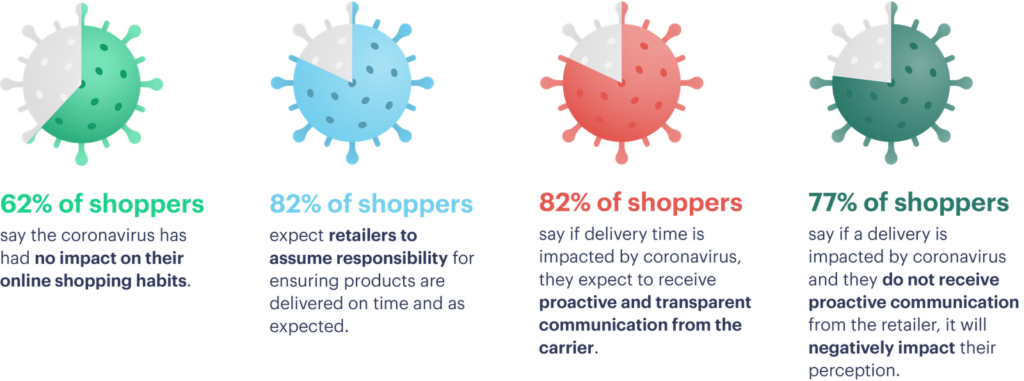Coronavirus: Its Impact on Ecommerce

Growing concerns surrounding the COVID-19 pandemic have had a widespread impact across the economy, including ecommerce. In light of the recent outbreak, we’ve witnessed events canceled, travels postponed, employees encouraged to work remotely, and much more. Yet, as we see areas of the economy closing, others are growing—particularly ecommerce. This growth has created major changes to delivery times, stock levels, and fulfillment priorities. ShipStation is compiling as many updates to this as we can.
There are a lot of unknowns regarding the supply chain in relation to COVID-19, and we are already seeing the impact on U.S. consumers. Our recent research study on the impact of the virus reveals that 20% of respondents have already had an ecommerce delivery delayed or canceled due to COVID-19.

Retail is one of the biggest industries affected by COVID-19. On the brick and mortar side, we’re seeing a drop in foot traffic. Our recent study reveals that 80% of people are avoiding malls and stores due to concerns of contracting COVID-19. Consumers are increasingly turning to ecommerce, with 1 in 5 saying they’re doing more online shopping as a result of concerns.

If the virus continues as is for the next few months, retailers will need to prepare for a shift in consumer attitudes when it comes to spending. Consumers may grow increasingly focused on discretionary spending items, prioritizing what they “need to have” versus what they “want to have.” 64% say the virus has made them more aware of where their products originate.

The biggest impact of the virus is consumer confidence. If consumer confidence is affected, it affects product demand. Consumers say if delivery was delayed or canceled due to COVID-19, 84% need proactive and transparent communication about the delay, and 81% want the ability to cancel an order altogether. 70% want an extended returns window to accommodate the delayed delivery, and 34% say they want a discount to apply to the next order.

If demand remains high in the coming months, retailers should also anticipate low inventory or delayed supply chains. For brands whose customers may bear this burden, it’s important to have transparent communications and potential return policy adjustments in order to preserve customer confidence. 78% of respondents said that their brand perception won’t be negatively impacted as long as a company provides expected information.



